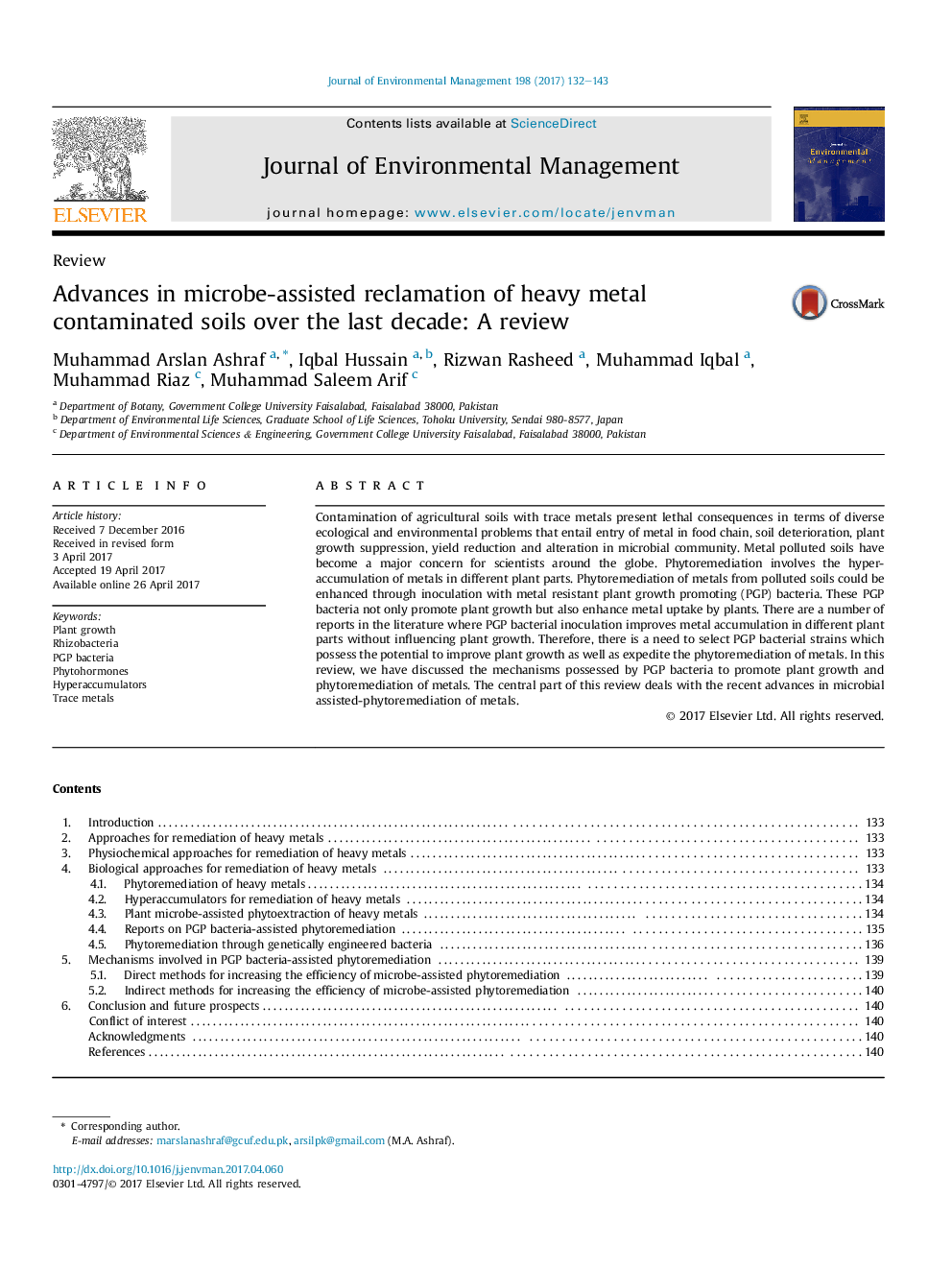| Article ID | Journal | Published Year | Pages | File Type |
|---|---|---|---|---|
| 5116737 | Journal of Environmental Management | 2017 | 12 Pages |
â¢Phytoremediation is the safest method for reclamation of trace metals.â¢PGP bacteria enhance plant growth and increase bioavailability of trace metals.â¢PGP bacteria alter various processes to improve metal bioavailability and uptake.â¢The efficiency of phytoremediation could be enhanced by PGP bacteria application.
Contamination of agricultural soils with trace metals present lethal consequences in terms of diverse ecological and environmental problems that entail entry of metal in food chain, soil deterioration, plant growth suppression, yield reduction and alteration in microbial community. Metal polluted soils have become a major concern for scientists around the globe. Phytoremediation involves the hyperaccumulation of metals in different plant parts. Phytoremediation of metals from polluted soils could be enhanced through inoculation with metal resistant plant growth promoting (PGP) bacteria. These PGP bacteria not only promote plant growth but also enhance metal uptake by plants. There are a number of reports in the literature where PGP bacterial inoculation improves metal accumulation in different plant parts without influencing plant growth. Therefore, there is a need to select PGP bacterial strains which possess the potential to improve plant growth as well as expedite the phytoremediation of metals. In this review, we have discussed the mechanisms possessed by PGP bacteria to promote plant growth and phytoremediation of metals. The central part of this review deals with the recent advances in microbial assisted-phytoremediation of metals.
